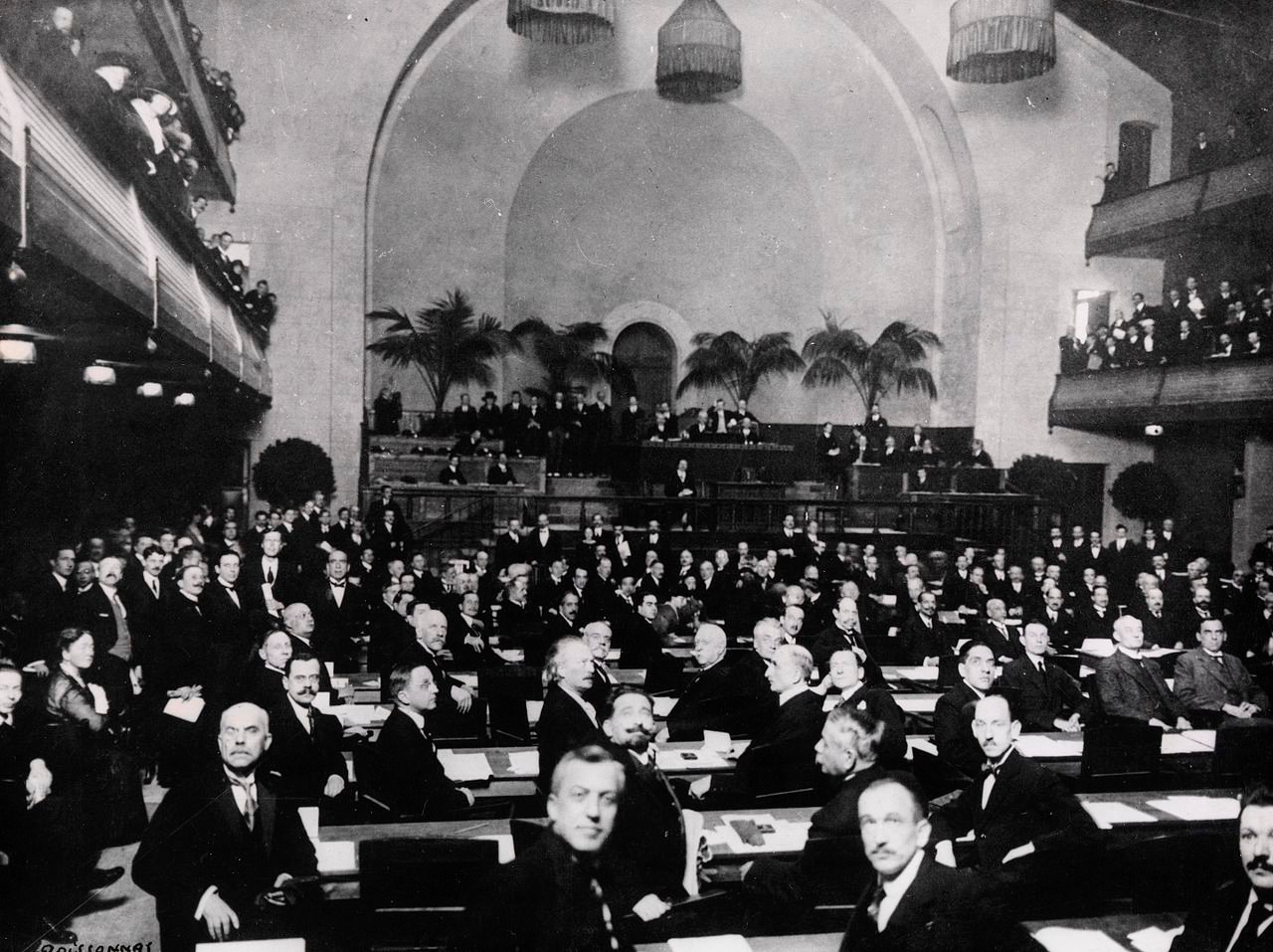The League of Nations, a precursor to the United Nations, convened for the first time on November 15, 1920. Formed in the aftermath of World War I, it represented the world’s first international diplomatic group aimed at maintaining peace and preventing future conflicts. While it eventually failed to prevent World War II, the League set a precedent for international cooperation and laid the groundwork for modern international relations.
The idea of creating an international organization to prevent wars and promote global cooperation was first proposed by President Woodrow Wilson of the United States. In his Fourteen Points speech in January 1918, Wilson outlined his vision for a post-war world order that would ensure lasting peace. One of his key proposals was the establishment of a League of Nations, which would provide a forum for nations to resolve disputes peacefully and collectively address global issues.
The League of Nations was officially founded with the signing of the Treaty of Versailles on June 28, 1919. The treaty, which formally ended World War I, included the Covenant of the League of Nations as an integral part. The Covenant outlined the organization’s structure, objectives, and principles, and was ratified by 42 countries, including the major powers of the time.
The first meeting of the League of Nations took place in Geneva, Switzerland, on November 15, 1920. Representatives from 41 member states gathered to discuss various issues, including disarmament, territorial disputes, and the promotion of international cooperation. The meeting was chaired by Sir Eric Drummond, a British diplomat who became the League’s first Secretary-General.
During the meeting, the League’s members emphasized the importance of collective security and the peaceful resolution of conflicts. They also discussed the establishment of various committees and organizations within the League to address specific issues, such as the Permanent Court of International Justice and the International Labour Organization.
While the League of Nations faced numerous challenges throughout its existence, it made significant contributions to international relations. One of its notable achievements was the resolution of several territorial disputes, including the Aaland Islands dispute between Finland and Sweden, and the Upper Silesia dispute between Germany and Poland. These successful mediations demonstrated the League’s potential to prevent conflicts through peaceful negotiations.
However, the League’s effectiveness was hindered by several factors. One of the major limitations was the absence of the United States as a member. Despite President Wilson’s initial proposal, the US Senate rejected the Treaty of Versailles and refused to join the League. This significantly weakened the organization’s global influence and financial resources.
Another challenge was the League’s inability to enforce its decisions. While member states were obligated to abide by the League’s resolutions, there were no mechanisms in place to ensure compliance. This became evident during the Manchurian Crisis in the 1930s when Japan invaded Manchuria, despite the League’s condemnation.
The League of Nations also faced criticism for its inability to address the underlying causes of conflicts, such as economic disparities and nationalist sentiments. These factors eventually led to the outbreak of World War II, which exposed the League’s limitations and led to its dissolution in 1946.
Despite its shortcomings, the League of Nations played a crucial role in shaping the modern international system. It laid the foundation for the establishment of the United Nations in 1945, which built upon the League’s principles and aimed to prevent future conflicts through collective security and international cooperation.
In conclusion, the first meeting of the League of Nations in 1920 marked a significant milestone in international diplomacy. Although the League ultimately failed to prevent World War II, it set a precedent for global cooperation and provided valuable lessons for future international organizations. The League’s legacy lives on in the United Nations, which continues to strive for peace and stability in the world.
SEO Excerpt:
The League of Nations, a precursor to the United Nations, convened for the first time on November 15, 1920. Formed in the aftermath of World War I, it represented the world’s first international diplomatic group aimed at maintaining peace and preventing future conflicts. While it eventually failed to prevent World War II, the League set a precedent for international cooperation and laid the groundwork for modern international relations. Learn more about the historical significance of the League of Nations and its impact on global diplomacy.

